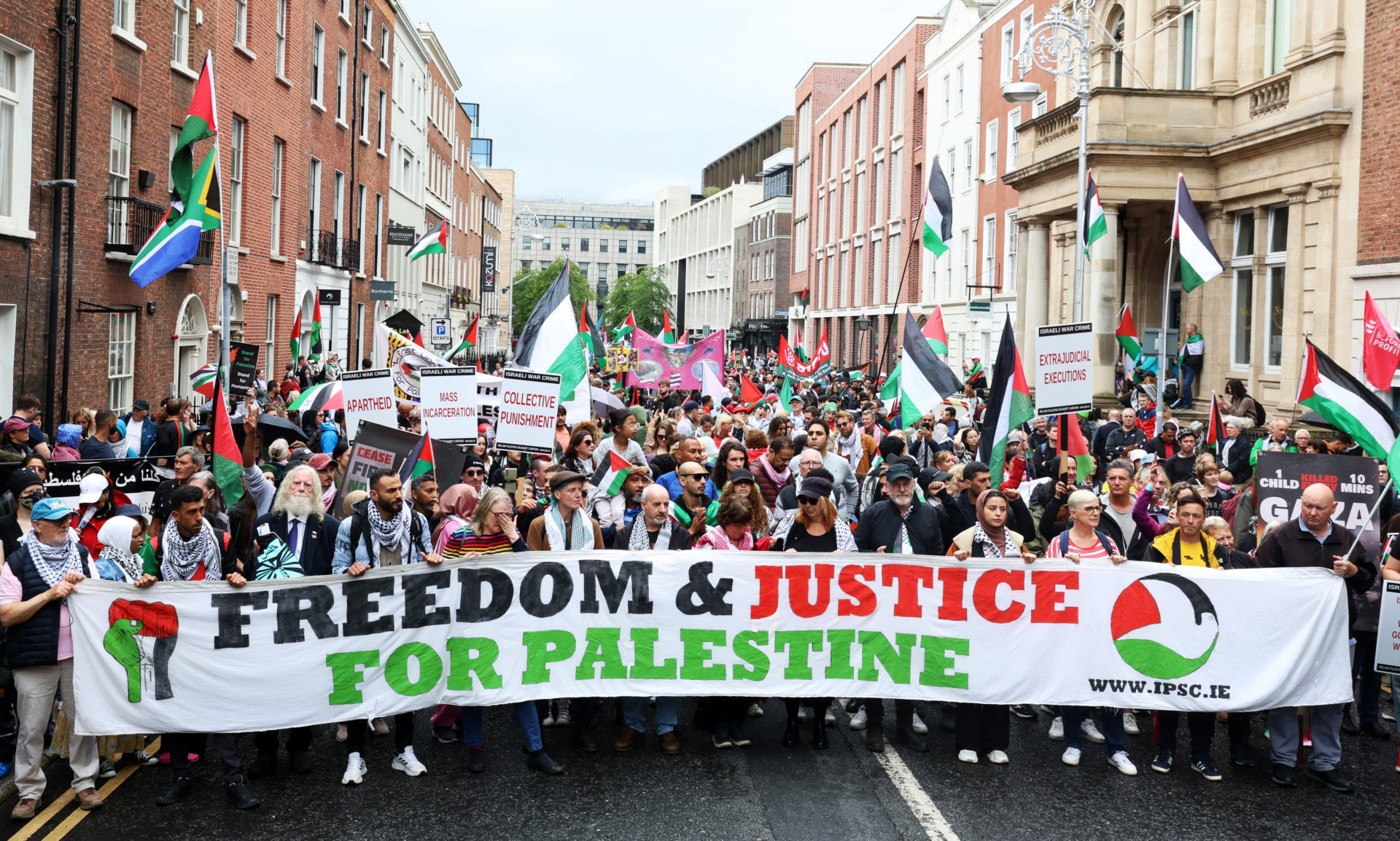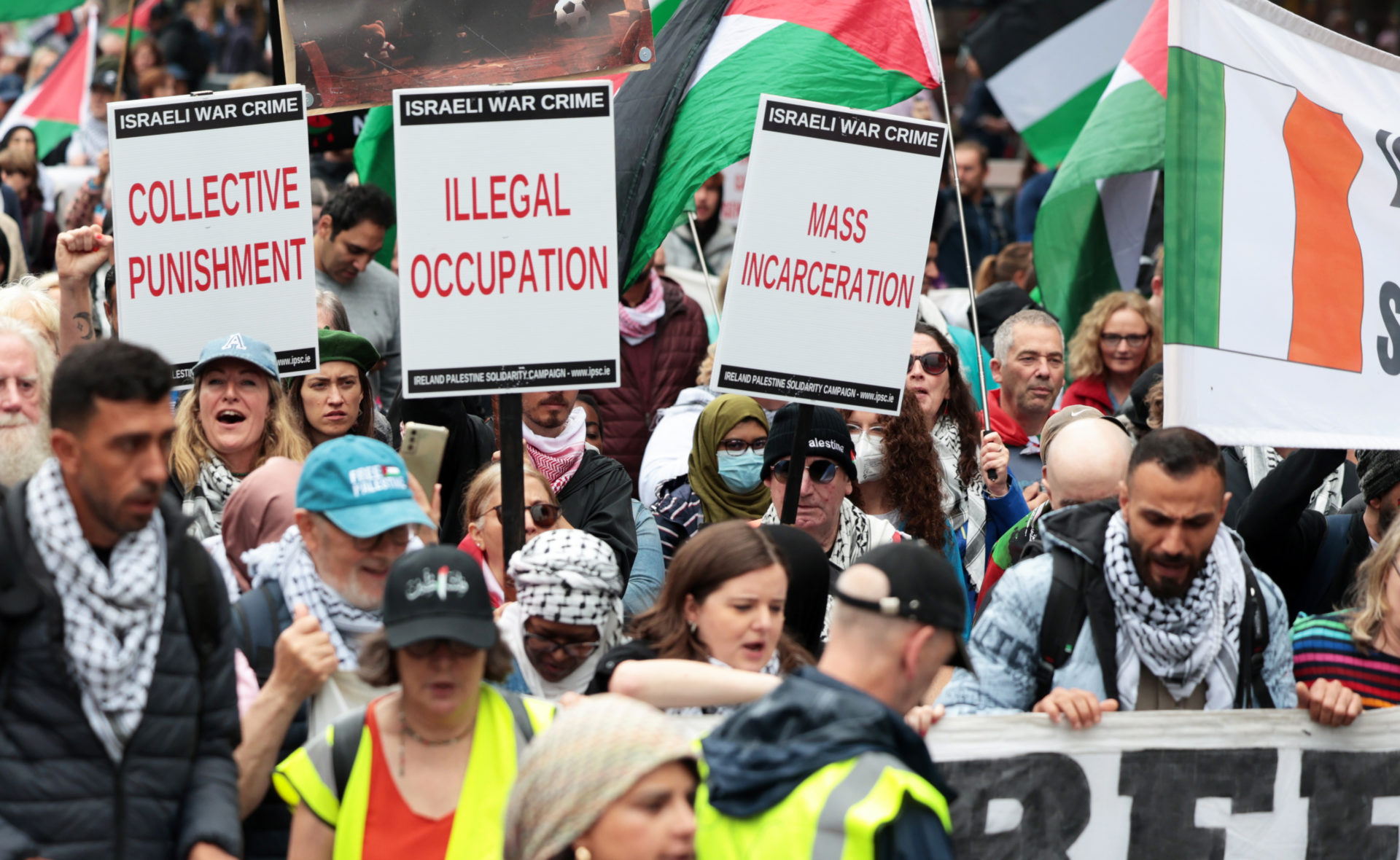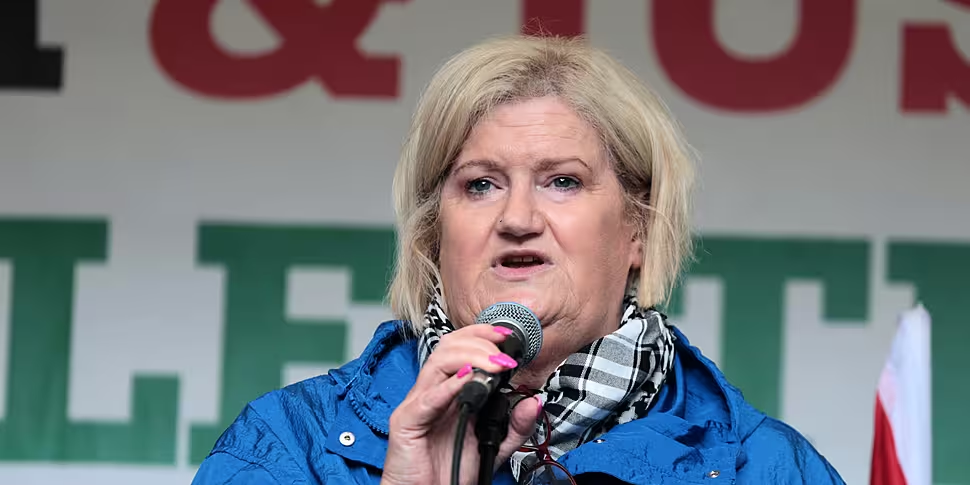A former Dunnes Stores striker has called on the Government to boycott Israeli goods at a national rally.
The seventh national demonstration for Palestine took place in Dublin today.
Thousands gathered from 1pm today at the Garden of Remembrance before marching to Leinster House for a rally outside the Dáil.
Over 120 Irish civil society groups joined the Ireland-Palestine Solidarity Campaign to condemn Israel’s “genocidal assault” on the people of Gaza.
Speaking ahead of the rally, Mary Manning, who led the Dunnes Stores strike in the 1980s, said it’s important for people to “get out on the streets”.
“Show [your] disgust at what’s happening in Gaza and the Government's lack of action,” she said.
“It's okay paying lip service to it but they need to actually sanction and boycott Israeli goods.”
 National rally for Palestine in Dublin, 20/07/2024. Image: Leah Farrell/© RollingNews.ie
National rally for Palestine in Dublin, 20/07/2024. Image: Leah Farrell/© RollingNews.ieMs Manning was marching in the rally today to mark 40 years since she and ten others went on strike after refusing to sell grapefruit from South Africa to protest apartheid.
She told Newstalk it’s important to involve the trade union movement in calls to boycott products from Israel.
“There’s a lot that can be done and a lot that should be done,” she said.
“We weren’t out on strike looking for the country to change the law - but that’s how the strike ended.
“It can be done – it might take a lot of time and work to do it but we need to put pressure on.”
Ms Manning and other strikers met President Michael D Higgins and Sabina at Áras an Uachtaráin yesterday.
 National rally for Palestine in Dublin, 20/07/2024. Image: Leah Farrell/© RollingNews.ie
National rally for Palestine in Dublin, 20/07/2024. Image: Leah Farrell/© RollingNews.ieWe Are Not Numbers Director Walaa Sabah also attended the protest today, saying the Irish people are “against genocide” and want more action from the Government.
She noted that the International Court of Justice ruled yesterday that Israeli occupation of Palestinian territory is illegal.
“We want what they have ruled to be implemented and not just words,” she said.
She said the protest shows the “public opinion” of the Irish people and “how this public opinion should shape the opinion of the Government”.
A study in The Lancet found the death count in Gaza could reach over 186,000 people.









